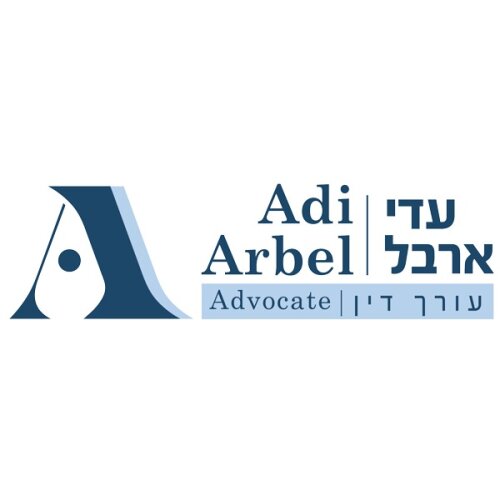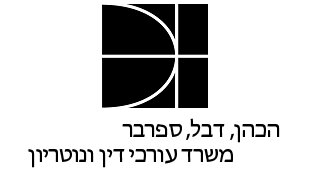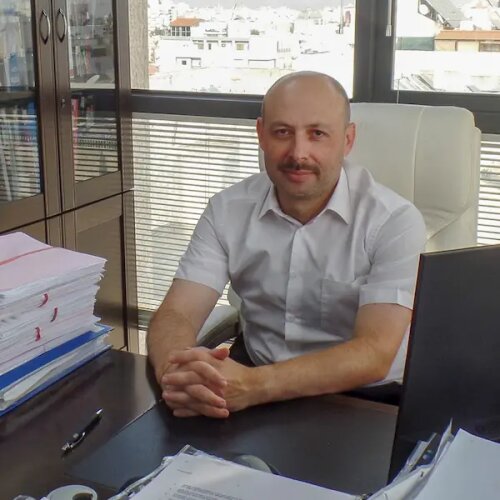Best Juvenile Law Lawyers in Jerusalem
Share your needs with us, get contacted by law firms.
Free. Takes 2 min.
List of the best lawyers in Jerusalem, Israel
About Juvenile Law in Jerusalem, Israel
Juvenile law in Jerusalem, Israel, primarily deals with issues that pertain to minors, defined as individuals under the age of 18. The Israeli legal system recognizes that juveniles should be afforded special protections due to their age and potential for rehabilitation. Our approach focuses on education, rehabilitation, and reintegration into society rather than strict punishment. The Juvenile Law Court in Jerusalem addresses various matters, including criminal offenses, child welfare, and family disputes involving minors.
Why You May Need a Lawyer
There are numerous situations where seeking legal advice in juvenile law might be necessary:
- Criminal Charges: If a minor is accused of committing a crime, having a lawyer can ensure they receive a fair trial and appropriate legal defenses.
- Child Welfare Issues: In cases of abuse, neglect, or other welfare concerns, a lawyer can help navigate the legal processes to protect the child’s interests.
- Family Court Matters: Legal issues such as custody disputes, adoption, or guardianship often require expert legal guidance.
- School-Related Incidents: Legal representation might be needed in cases of school suspensions, expulsions, or violations of rights within the educational system.
- Emancipation: Some minors may seek legal emancipation from their parents or guardians, for which they will need professional legal assistance.
Local Laws Overview
Several key aspects of local laws are particularly relevant to juvenile law in Jerusalem:
- Juvenile Justice Act: This legislation outlines how criminal cases involving minors should be handled, emphasizing rehabilitation rather than punishment.
- Compulsory Education Law: Ensures that minors receive mandatory education and deals with legal issues related to truancy or school-related offenses.
- Child Protection Laws: These laws safeguard minors from abuse, neglect, and exploitation. Authorities can intervene if a child's welfare is at risk.
- Family Court Procedures: Family courts have specialized procedures for cases involving minors to ensure their interests are adequately represented.
- Drug Rehabilitation Programs: Special provisions for minors involved in drug offenses aim to provide rehabilitation and avoid long-term criminal records.
Frequently Asked Questions
What age is considered a minor in Jerusalem, Israel?
In Jerusalem, Israel, individuals under the age of 18 are considered minors.
Can minors be tried as adults?
In severe cases, such as for very serious offenses, minors can be tried as adults. However, this is rare and subject to strict judicial review.
What rights do minors have when arrested?
Minors have the right to legal representation, to be treated with respect, and to have a parent or guardian present during questioning.
What happens if a minor is convicted of a crime?
If convicted, minors are usually subject to rehabilitation programs, community service, or educational requirements, rather than harsh punishments like adults.
How can a lawyer help a minor facing criminal charges?
A lawyer can provide legal advice, defend the minor's rights, negotiate plea deals, and work towards the best possible outcome, focusing on rehabilitation.
Are juvenile court proceedings public?
No, juvenile court proceedings are typically closed to the public to protect the privacy of the minors involved.
What should I do if I suspect a child is being abused?
You should report the situation to local authorities or child protection services immediately. You may also seek legal advice on further actions.
Can minors seek emancipation? How?
Yes, minors can seek legal emancipation. This process usually requires proof that the minor can live independently and is in their best interest.
Do minors have a right to custody and visitation decisions?
Yes, minors' best interests are a primary concern in custody and visitation decisions, and their preferences may be considered depending on their age and maturity.
What if a minor skips school regularly?
Truancy can lead to legal consequences for both the minor and their parents. However, the focus is often on addressing underlying issues and ensuring the child returns to school.
Additional Resources
There are several resources, governmental bodies, and organizations dedicated to assisting with juvenile law issues:
- Ministry of Justice - Provides information and resources about juvenile law and related legal proceedings.
- Child Protection Services - An essential service for reporting and addressing child welfare and protection issues.
- Public Defender's Office - Offers legal representation for minors who cannot afford private lawyers in criminal cases.
- Social Services - Assists with various issues related to child welfare, including family support and rehabilitation services.
- Legal Aid Clinics - Many universities and NGOs provide free or low-cost legal aid for minors and their families.
Next Steps
If you need legal assistance in juvenile law, follow these steps:
- Identify Your Issue: Clearly define the legal issue or concern you are facing. This will help you determine the type of legal assistance you need.
- Seek Initial Advice: Contact a legal aid clinic or consult an attorney specializing in juvenile law for initial guidance and assessment.
- Gather Documentation: Collect all relevant documents, such as police reports, school records, or medical records, that may be pertinent to your case.
- Schedule a Consultation: Arrange a meeting with a qualified juvenile law lawyer to discuss your case in detail and explore your legal options.
- Follow Legal Advice: Adhere to the legal advice provided by your lawyer and take the necessary steps to ensure the best possible outcome for the minor involved.
Lawzana helps you find the best lawyers and law firms in Jerusalem through a curated and pre-screened list of qualified legal professionals. Our platform offers rankings and detailed profiles of attorneys and law firms, allowing you to compare based on practice areas, including Juvenile Law, experience, and client feedback.
Each profile includes a description of the firm's areas of practice, client reviews, team members and partners, year of establishment, spoken languages, office locations, contact information, social media presence, and any published articles or resources. Most firms on our platform speak English and are experienced in both local and international legal matters.
Get a quote from top-rated law firms in Jerusalem, Israel — quickly, securely, and without unnecessary hassle.
Disclaimer:
The information provided on this page is for general informational purposes only and does not constitute legal advice. While we strive to ensure the accuracy and relevance of the content, legal information may change over time, and interpretations of the law can vary. You should always consult with a qualified legal professional for advice specific to your situation.
We disclaim all liability for actions taken or not taken based on the content of this page. If you believe any information is incorrect or outdated, please contact us, and we will review and update it where appropriate.













